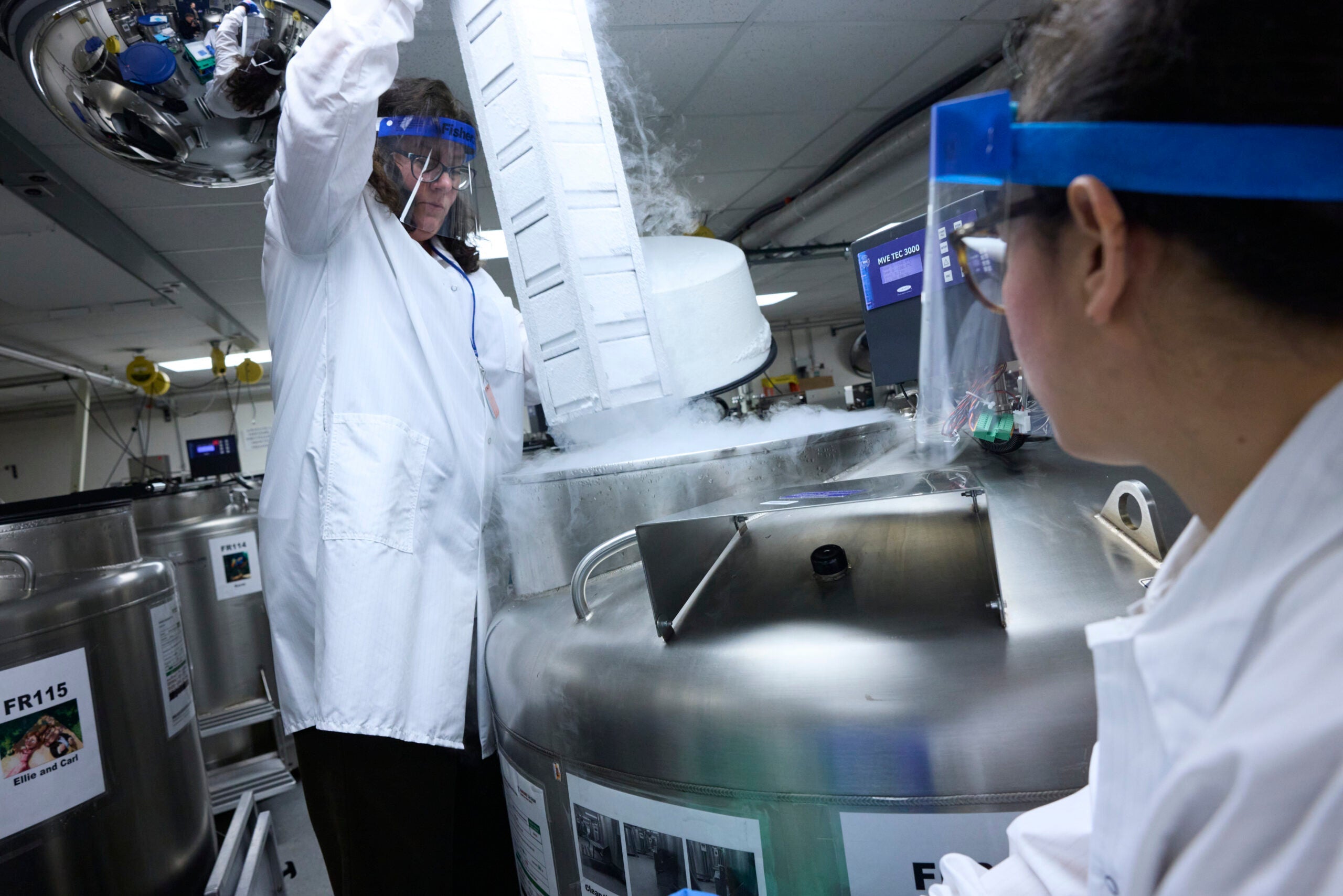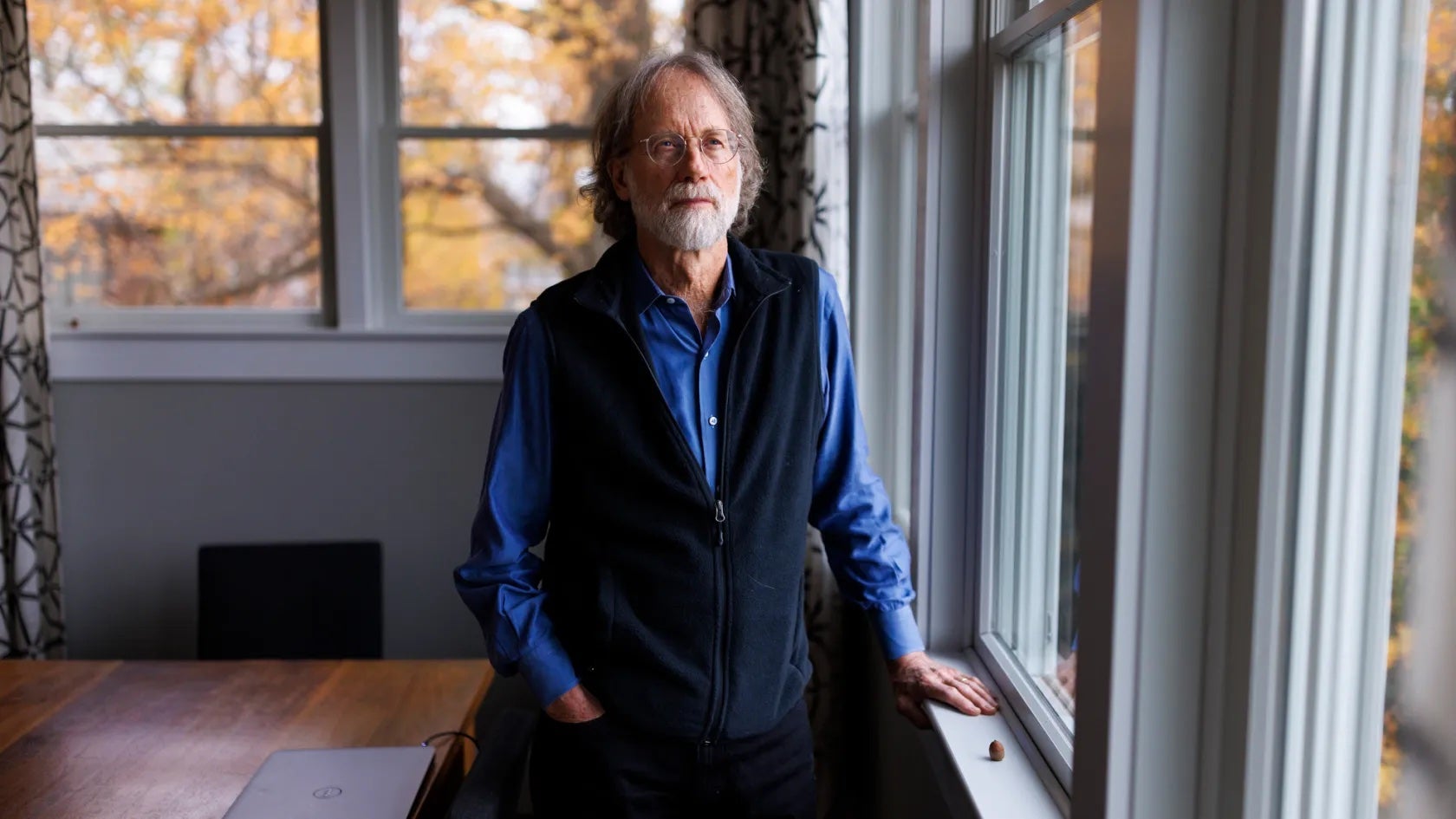Long-running Nurses’ Health Study seeking to diversify funding

October 17, 2024—For nearly five decades, the Nurses’ Health Study (NHS) has investigated the risk factors for the most prevalent chronic diseases in women and thousands of scientific articles have drawn on its data. However, the study could be coming to an untimely end if additional funding is not secured soon.
That possibility, warned Heather Eliassen, professor of nutrition and epidemiology at Harvard T.H. Chan School of Public Health, would be “an unbelievable loss for public health.”
NHS was launched in 1976 when a small group of researchers from Harvard Chan School, Harvard Medical School, and Brigham and Women’s Hospital (BWH), led by Harvard Chan’s Frank Speizer, recruited 121,700 female registered nurses across the U.S. to periodically complete detailed questionnaires about their lives and health and submit biological samples such as blood, urine, cheek swabs, and even toenail clippings.
While the study’s primary motivation was to examine the relation between oral contraceptives and breast cancer, over time its focus grew to include the impact that many other factors—such as smoking, diet, and lifestyle—have on more than 30 chronic diseases.
It also expanded to additional cohorts, including the Nurses’ Health Study II (NHS II)—which launched in 1989 with 116,430 participants—and the Nurses’ Health Study 3 (NHS3), which started in 2010 and is still actively recruiting participants. Currently, 291,000 nurses are enrolled across the three cohorts, collectively known as the Nurses’ Health Studies.
Eliassen, who serves as co-principal investigator of NHS and NHS II, says the enormous repository of data they have collected has transformed public health and clinical guidelines around the world, leading to scores of important insights about cancer, diabetes, heart disease, dementia, and more. “For example, we were able to show obesity is a risk factor for multiple types of cancer and many other diseases, ranging from eye diseases to neurodegenerative conditions, for which it was not previously a known risk factor,” she said.

The studies have also been crucial in providing scientists with a clearer picture of what a healthy diet looks like and have led to a plethora of important findings. Among them: Women who eat more fruits and vegetables are at a lower risk of breast cancer, particularly aggressive types; among breast cancer survivors, higher consumption of fruits and vegetables lowers mortality risk; higher intakes of trans fat increases risk of heart disease; and women who regularly engage in moderate physical activity are less likely to suffer cognitive impairment later in life.
Over 3,800 scientific articles drawing on data from the Nurses’ Health Studies have been published so far—but Walter Willett, professor of epidemiology and nutrition at Harvard Chan School and co-principal investigator of the NHS II, said that researchers have only scratched the surface. “There is still so much we can learn from the NHS studies,” he said. “We are looking into healthy aging and trying to understand how different behaviors and lifestyle factors can affect our ability to remain healthy as we get older. We are also studying whether our eating habits, including during adolescence, can increase or lower our chances to develop cancer later in life.”
“Crucially, we are looking at cancer survivors to understand how their diet and lifestyle before and after diagnosis can affect their outcomes,” added Eliassen.
The researchers hope that institutions or philanthropists can step forward to keep the Nurses’ Health Studies alive. Until June this year, the NHS was funded by the National Cancer Institute (NCI), which chose not to continue supporting the study. The study is currently running for another year using the remaining money from the grant.
In addition, while the grants supporting the NHS II and the NHS3—which are funded by the NCI and the National Heart, Lung, and Blood Institute respectively—will support research for the next few years, their funding mechanisms have also changed, meaning they won’t be renewed when they expire.

“We risk losing so many scientific opportunities,” said Willett. “No other cohort study in the world has collected the same depth and breadth of data from such a large population and over such an extended period of time.”
“We also risk missing the questions we don’t know to ask at this point,” said Eliassen. “Today, we have hundreds of thousands of biological samples in our archives,” she said. “As technology advances and our understanding of how risk factors may contribute to our health improves, we want to be able to go back to those samples and analyze them in new ways. But it costs money to maintain those archives and it would be a terrible loss if we weren’t able to support that resource.”
If the NHS were to close next year, it would also likely disappoint the women who have been enrolled in it for almost 50 years. Now in their late 70s to 100s, they have spent most of their life providing scientists with clues about women’s health. “These women have given so much to public health and our understanding of women’s health,” said Eliassen. “We don’t want to give up on what they have shared and continue to contribute.”
Photos by Kent Dayton


